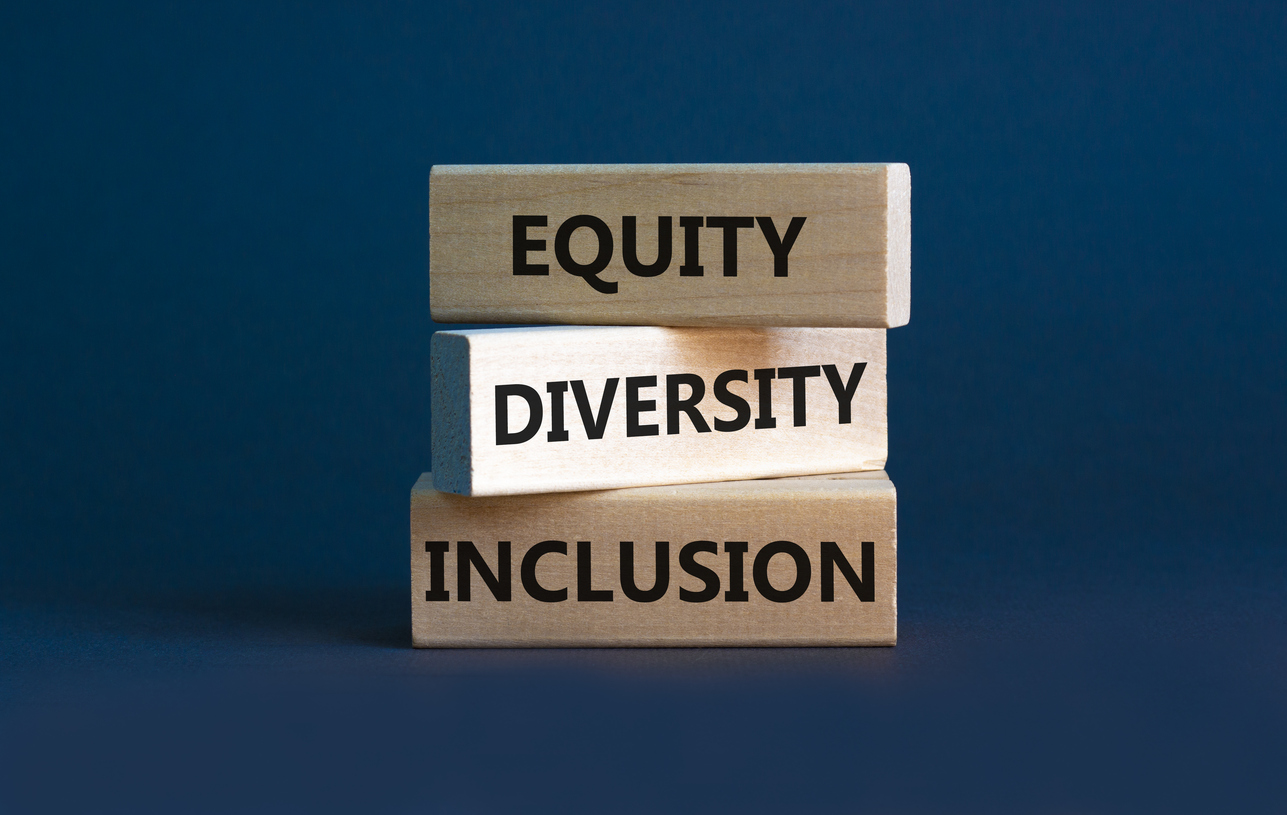Democratising Finances: The True Importance Of Financial Inclusion
Sometimes it's easy to overlook the fact, which might not even be known by many, that despite the prevailing digitalisation and interconnectedness of our world, 1.4 billion adults globally remain unbanked, as highlighted by the World Bank. Furthermore, amidst the prevalence of digital payment solutions, it's crucial to acknowledge that one-third of adults worldwide continue to receive state benefits in cash or through non-direct debit channels.¹
Financial inclusion, while demonstrating an upward trajectory, remains a significant and essential subject that necessitates discussion, research, and action. In this article, we delve into the topic to elucidate the current scenario, potential future endeavours and the genuine importance of fostering a diverse and inclusive financial world.
What is financial inclusion?
“Financial inclusion is a key enabler to reducing poverty and boosting prosperity.” - World Bank
Financial inclusion - according to the World Bank - refers to the accessibility of pertinent and cost-effective financial solutions for both individuals and enterprises, catering to their various requirements such as transactions, payments, savings, credit and insurance. These services are provided in a manner that is both accountable and enduring, ensuring responsible and sustainable delivery.
Main impacts of financial inclusion
The democratisation of finances sparks a wave of positive impacts across the globe, resonating on both local and individual levels while igniting vibrant shifts in social and economic landscapes. By breaking down barriers to financial access and opportunity, it creates pathways for historically underserved communities to participate fully in economic life.
In societies where certain groups have been systematically excluded from financial services, such as women, minorities and low-income individuals, democratised finances can act as a catalyst for change. Such services provide opportunities for these marginalised groups to access essential financial tools and resources, empowering them to build economic stability and independence.
Furthermore, the impact of democratised finances extends beyond societal boundaries, reaching into different geographic regions where financial service provision has been historically low. In rural areas and developing countries for example, accelerated financial inclusion opens doors to previously inaccessible banking services, credit options and investment opportunities. This not only stimulates local economic development but also fosters greater resilience and prosperity within these communities.
Who can benefit from financial inclusion and how?
The real value of financial inclusion lies in its transformative potential to empower individuals and communities, driving economic growth, reducing poverty and promoting social equity. By providing access to essential financial services, financial inclusion enables individuals to save, invest and build assets, fostering economic stability and resilience. Moreover, it facilitates participation in the formal economy, unlocking opportunities for entrepreneurship, education and healthcare.
Ultimately, financial inclusion is not only about numbers on a balance sheet; it's about improving lives, creating opportunities and building a more inclusive and prosperous future for all.
.jpg)
Where are we now? The current landscape of financial inclusion
In recent years, financial inclusion has emerged as a critical global priority, with trusted international organisations providing valuable insights into key statistics and trends.
The World Bank's Global Findex Database highlights significant progress. Over the decade spanning from 2011 to 2021, the number of adults with bank accounts increased by an impressive 50%, with developing nations witnessing a remarkable 30-percentage-point increase in bank account ownership, largely propelled by digitalisation.²
The IMF's Financial Access Survey (FAS), as part of its 14th annual report, underscores the resilience of financial access amid the COVID-19 pandemic. Microfinance institutions supported vulnerable segments, while traditional financial touchpoints declined in favour of a surge in digital payments. This trend, driven by digital financial services, contributed to sustained levels of inclusion in 2022.³
However, a persistent concern highlighted in the survey results is the continuing gender gap in financial access across many economies. Despite a modest increase in overall account ownership from 2021 to 2022, the gender disparity in bank account ownership remains significant, with men holding, on average, 55% more deposit accounts and significantly higher deposit values compared to women.³
The Global Financial Inclusion Index assessment for 2023 indicates a slight improvement in global financial inclusion. It clearly reveals that economies with digitally enabled financial systems are advancing rapidly, underlining the importance of digital solutions in promoting fair financial access worldwide. Financial industry players, especially digital payment providers, are urged to prioritise digitally underserved regions to foster inclusive financial growth.⁴
These findings stress the pivotal role of digital technologies in enhancing financial inclusion, while also emphasising persistent challenges, such as SME financing and gender disparities. Addressing these challenges necessitates collaborative efforts from governments, employers, financial institutions and other industry players to ensure diverse and equitable access to financial services for all.
.jpg)
Opportunities to accelerate financial inclusion
Accelerating financial inclusion presents both challenges and significant potential for global development. Let's explore how two major stakeholders can navigate this balance.
International organisations
Global institutions play a pivotal role in gathering data, raising awareness, setting strategic directions, implementing actions and facilitating connections among service providers, governments and users.
Making Access Possible
International initiatives such as The Making Access Possible (MAP) Programme, spearheaded by the UN Capital Development Fund, are crucial in advancing financial inclusion efforts. This data-driven initiative focuses on expanding financial inclusion in developing countries, gathering invaluable insights through extensive research and analysis.
MAP collects data on financial access, usage patterns and barriers within specific regions and demographics, providing essential information for policymakers, financial institutions and development agencies. Understanding these challenges is fundamental for designing targeted interventions and policies to foster greater financial inclusion.
United Nations
The United Nations (UN) identifies financial inclusion as a critical driver for both economic and social progress. This recognition is evident in its acknowledgement of financial inclusion as a key enabler for eight out of the 17 Sustainable Development Goals (SDGs). By integrating financial inclusion into these goals, the UN highlights its significance in advancing various aspects of sustainable development, including poverty reduction, gender equality and economic growth.

G20
The G20 has made a firm commitment to promote financial inclusion on a global scale and has reiterated its dedication to implementing the G20 High-Level Principles for Digital Financial Inclusion. These principles aim to harness the potential of digital technologies to expand financial inclusion, particularly in underserved and marginalised populations. Key areas of focus include improving access to digital financial services, enhancing digital literacy and consumer protection, fostering innovation and competition in digital finance, and promoting collaboration among stakeholders to ensure inclusive and sustainable development.
Providers
As mentioned in the assessment results, economies with digitally enabled financial systems are advancing rapidly, highlighting the importance of digital solutions in promoting fair financial access worldwide. Digital payment providers therefore have significant opportunities to accelerate financial inclusion.
They should prioritise designing inclusive products that cater to the diverse needs of all users, including those with limited digital literacy or connectivity. By offering convenient and affordable digital payment solutions, industry providers can empower underserved communities to stimulate economic growth and development in these areas.
User-friendly and accessible digital solutions, such as digital wallets, payment apps, digital cards, multicurrency accounts, fair and transparent exchange and transaction fees, as well as blockchain technology, are pivotal in accelerating financial inclusion. However, to foster trust among users, providers must also prioritise implementing the highest security standards.
Fortunately, we are witnessing an increasing number of positive initiatives where industry players collaborate with each other as well as with local authorities and governments towards achieving a more inclusive and financially democratised world.
Financial inclusion at Guavapay
Since Guavapay’s inception, our founders have been steadfast in their commitment to revolutionising the financial market with disruptive technologies. As we embarked on a journey of growth, our mission to create a global payments platform aimed at empowering inclusivity on a worldwide scale became increasingly clear. Today, as a global payments enabler, our core values are unwavering: fostering diversity and inclusivity in finance through professional collaborations and designing accessible and convenient products.
For instance, our All Things Payments App, MyGuava App has been meticulously developed with the end user in mind, ensuring accessibility, affordability and convenience for all users.
MyGuava's uniqueness lies in its constantly evolving approach to offering comprehensive solutions tailored to real client needs and goals. With international accessibility, zero-fee multi-currency accounts and transfers, and digital payment options, MyGuava ensures financial inclusion and affordability. Moreover, MyGuava Business extends our mission to businesses by providing accessible solutions for enterprises of all sizes.
If you're interested in learning more about our initiatives and innovative solutions, feel free to reach out to us. We're here to help!
References:

.jpg)



